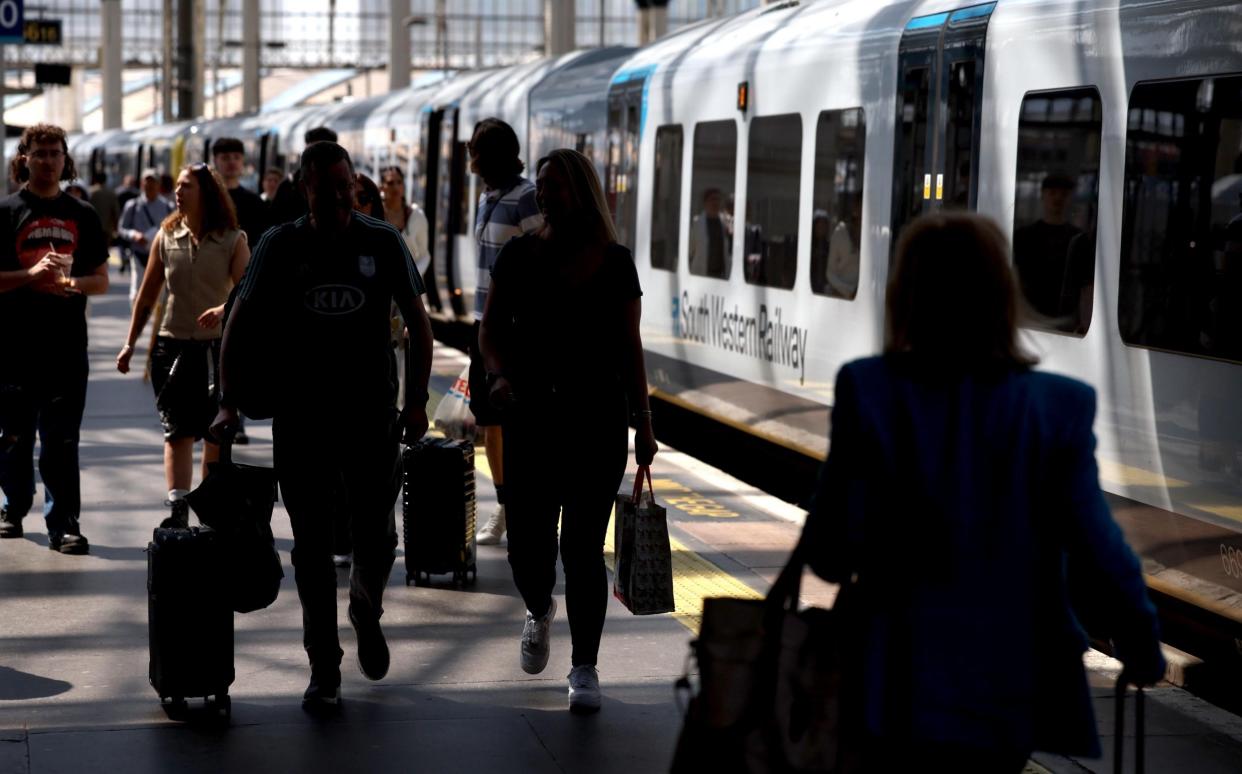Commuters using train season tickets drops to record low due to working from home

The proportion of train journeys made using season tickets has fallen to a record low thanks to home working, new figures have revealed.
Office of Rail and Road (ORR) data show the tickets accounted for just over 13 per cent of the 1.6 billion journeys taken on Britain’s railways in the year to the end of March.
That is down from 15 per cent during the previous 12 months, and is the lowest percentage of season ticket journeys in records dating back to 1987.
The proportion of journeys made using season tickets has been steadily falling for the past 10 years, Telegraph analysis of ORR data shows.
Around a third of train journeys before coronavirus restrictions began in March 2020 were made using season tickets. That decline sharply accelerated during the pandemic and has continued to fall ever since.
Between April and June 2021 the number of journeys made using season tickets crashed to just 18 per cent of total rail journeys, down from 32 per cent in the previous three months.
Since then, the percentage of journeys made using expensive season tickets has hovered around the 15 per cent mark.
Passengers who only travel to the workplace by train for part of the week often buy daily tickets because this is more cost-effective than weekly, monthly or annual season tickets.
Flexi season tickets aimed at commuters who travel to work two or three days a week were launched in June 2021, but their take-up has been minimal and they have been criticised for often offering little or no saving compared with daily tickets.
The rail industry was historically reliant on many commuters – particularly in south-east England – purchasing expensive annual season tickets for a large chunk of its total revenue.
In the year to the end of March, revenue from passengers was £10.3 billion.
That is just 82 per cent of the £12.7 billion generated in 2019/20, despite the total number of journeys being made recovering to 93 per cent.
In the financial year to March 2023, the latest for which figures are available, passenger rail companies paid out £58.7 million in dividends to their private sector owners.
During the same period, train companies made £8.4 billion from ticket sales and onboard catering services.
Government subsidies to passenger train companies totalled £4 billion in the year to March 2023.

